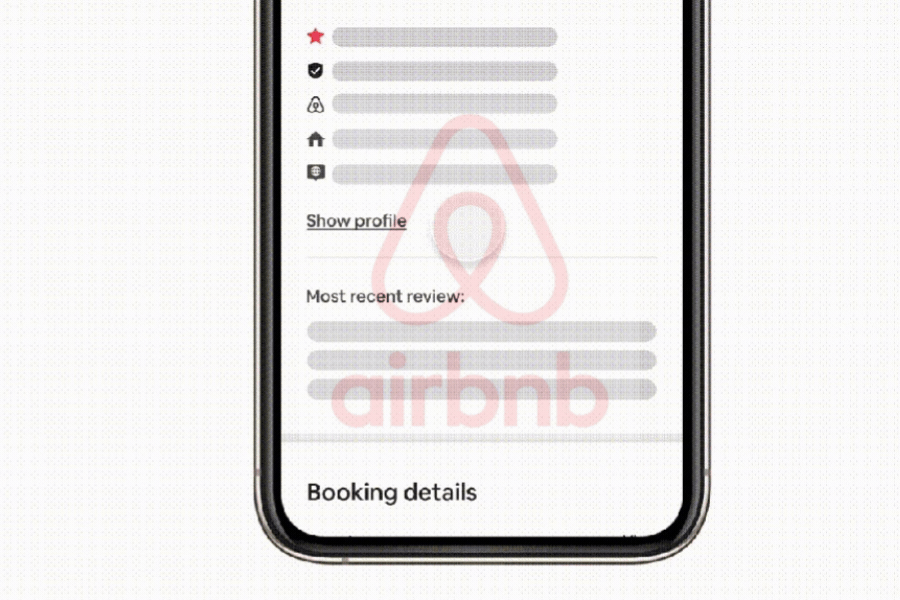The Crucial Importance of Vetting Airbnb Guests: A Comprehensive Guide to Avoiding Host Nightmares
In the competitive world of short-term rentals, ensuring a smooth and trouble-free hosting experience is essential. One critical aspect of this is properly vetting guests before accepting reservation requests. A well-structured guest screening process not only helps in maintaining your property but also safeguards your peace of mind. In this post we’ll dive into why vetting is crucial, explore the potential pitfalls of neglecting this step, and provide useful tips for effective guest screening.
The horrors of neglecting guest vetting
Failing to thoroughly vet guests can lead to a myriad of issues that can make hosting an absolute nightmare. For example:
Violation of House Rules: Without proper vetting, guests may disregard your house rules, leading to unauthorized parties, excessive noise, or damage to your property. Hosts regularly report issues ranging from loud gatherings to guests bringing in additional, unregistered people, causing disruption and property damage.
Unauthorized Pets: Pets can cause significant wear and tear on your property. If you haven’t explicitly prohibited pets or if the guests haven’t disclosed their pets, you may find your space damaged by furry friends that weren't mentioned in the booking details. For instance, there are horror stories of guests bringing in exotic pets, like monkeys, that trash the place. While this is an extreme example, it’s important to ask up front to avoid the “well, I didn’t know” excuse later. Additionally, if a guest is hiding their intention to bring an unauthorized pet into your property, there’s probably a good reason. The pet may have a history of being destructive and they don’t want it documented that they did, in fact, have a pet in the Airbnb.
Damage and Clean-Up: Guests who are not properly vetted may end up causing more damage than anticipated. This includes broken furniture, stained carpets, or general mess that could require extensive cleaning or repairs. Without proper identification and documentation, holding these guests responsible for damages can be a challenging and time-consuming process.
Difficulty in Collecting Fees: In cases of property damage or rule violations, having verified and documented guests helps in collecting fees and resolving disputes. Guests who aren't properly vetted will likely leave without addressing the damages they caused, making it harder to claim compensation. It’s nearly impossible to collect from an unverified Aribnb guest because you simply don’t know who they are.
Legal and Insurance Issues: Without proper verification, you might face issues with insurance claims or legal responsibilities if guests engage in illegal activities or refuse to adhere to your house rules.
Essential steps for effective guest vetting
To avoid these potential pitfalls and ensure a seamless hosting experience, implementing a thorough vetting process is vital. Here’s a detailed guide on how to vet your guests effectively:
Ask the Right Questions
Purpose of Stay: Inquire about the reason for their visit. Are they on vacation, business, or visiting family? This helps in understanding their expectations and ensuring they fit the profile of your ideal guest.
Number of Guests: Confirm the total number of guests staying at the property. This helps in managing the accommodation appropriately and ensures that the guest count aligns with your property’s capacity.
Pets: Ask if they will be bringing any pets. Make sure to clarify your pet policy and ensure they comply with your guidelines.
Review Guest History
Previous Reviews: Check the guest’s reviews from past hosts. Look for patterns in their behavior and any feedback that indicates issues or problems. Positive reviews from reputable hosts are a good sign, while negative reviews or a lack of feedback may be a red flag.
Host Interaction: Pay attention to how they communicate with previous hosts. Prompt and respectful communication indicates reliability, whereas delayed or vague responses can be concerning.
Verify Identity
Platform Verification: Ensure the guest’s profile is verified through the booking platform. This includes checking their ID verification status if the platform provides such details.
Government-Issued Photo ID: For additional security, request a copy of their government-issued photo ID. This can help confirm the guest’s identity and address any discrepancies.
Evaluate Communication
Response Time and Clarity: Note how quickly and clearly the guest responds to your messages. A swift, detailed response suggests they are serious about their booking and more likely to adhere to your house rules.
Red Flags: Be cautious of vague answers or reluctance to provide details. This may indicate they have something to hide or are not fully committed to respecting your property.
Understand Their Agreement to House Rules
Rule Acknowledgement: Confirm that they have read and agreed to your house rules. This can be done by having them acknowledge the rules in writing and reiterating any critical policies, such as noise restrictions or party prohibitions.
Detailed Policies: Make sure your house rules are clear and detailed to avoid misunderstandings. This includes policies on guests, pets, smoking, and any other specific guidelines.
Check Their Flexibility and Availability
Last-Minute Bookings: Determine their flexibility for last-minute bookings and any changes in plans. Reliable guests should be able to accommodate adjustments and adhere to booking conditions without issues.
Emergency Contact: Have a plan in place for emergency contact and ensure the guest is aware of how to reach you if needed.
Ask questions up front to avoid trouble later
Properly vetting guests is crucial for maintaining a successful and trouble-free hosting experience. By asking the right questions, verifying identities, and understanding their agreement to house rules, you can mitigate potential issues and protect your property. It’s worth investing time in developing a thorough guest screening process to avoid the common pitfalls and ensure a positive experience for both you and your guests.
If you're an Airbnb, VRBO and/or Booking.com host looking for a way to set your property apart and get more bookings, consider integrating a unique experience like QR Clue. Offering something special can make all the difference in standing out in a seemingly crowded vacation rental market.
Happy Hosting!
Rachel & Jason

